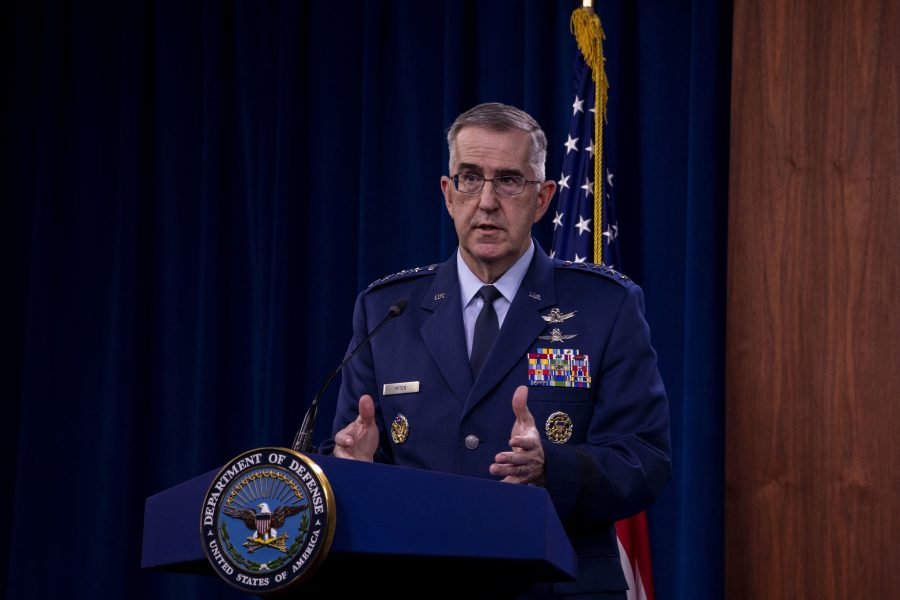While the COVID-19 pandemic is forcing the nation and military to learn how to operate in a strange new world, it hasn’t diminished the force’s readiness, Vice Chairman of the Joint Chiefs of Staff Air Force Gen. John Hyten said on May 21.
“The first question a lot of people ask me from a military perspective is ‘are we ready today to handle whatever threats that we have to deal with?’” he said during an online town hall hosted by the COVID-19 Military Support Initiative. “And the answer is—by every measure you can have—is that we are ready for every threat that potentially we would face today in the world.”
According to Hyten, who also heads up the Defense Department’s COVID-19 Task Force, the respiratory illness caused by the new coronavirus is hitting the U.S. military less intensely than the rest of the population. As of the morning of May 21, the Defense Department recorded a cumulative total of 5,888 cases of the virus among troops. According to DOD data, as of the same time, only 2.19 percent of infected troops have required hospitalization.
“Our force is on the whole, young, fit, healthy, and because of that, we fight through all diseases much better than the rest of the country and the rest of the world,” he said. Most sickened troops “experienced very, very mild symptoms,” and others were asymptomatic, he added.
“The one thing I would like to make sure we take out of this is the need to continue to focus on fitness and a healthy lifestyle, not just for our members, but for our families, as well, because if you’re healthy and you’re fit, and you do happen to get hit with the COVID[-19] virus, or whatever other virus happens to be out there, you have a pretty good chance of fighting through it and being just fine,” he said.
And though COVID-19 might be making Americans nostalgic for pre-pandemic life, Hyten said the nation and Defense Department must prioritize figuring out how to function in “the new normal” it’s created.
“Every time a crisis has happened in this country, we always say, ‘gosh, I wish we could go back to the way it was,’” Hyten said. “But that’s not our job. Our job is to figure out how to go back to the way that it is.”
For the military, he said, that looks like learning how to train and operate differently, as well as figuring out how to stay safe, since the pandemic could persist past 2020.
Hyten stressed that, even if a vaccine is developed against the virus, future pandemics are bound to happen, and “we need to be able to respond better and learn from what we’ve done this time,” as well as find a way to keep collaborating and training with allies and partners despite potential contingencies.
